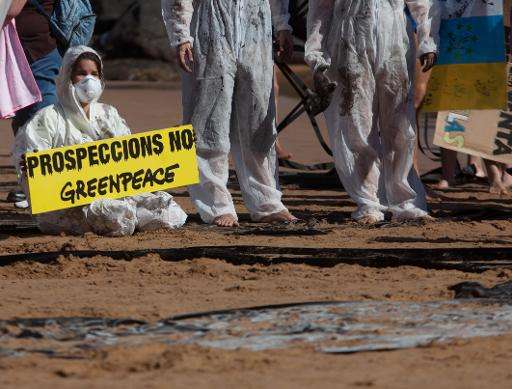Spain's crisis has taken environmental toll: Greenpeace

Spain's economic crisis and successive corruption scandals have led to looser environmental regulations which have taken a huge toll on the environment, Greenpeace said in a report published Wednesday.
The environment is "one of the main victims of the crisis" which was sparked by the collapse of a decade-long building boom in 2008. the group said in the 47-page report.
"There are hundreds of corruption cases which have left behind them natural spaces covered in cement and soil contaminated by hazardous waste," the report added.
There were 1,754 court cases involving suspected illegalities related to urban planning decisions in 2011 alone, it said.
The "revolving door" of officials between posts in the public office and the private sector "creates a vicious circle where policies are made to benefit companies," Greenpeace added.
The report analysed the impact of policies put in place by Prime Minister Mariano Rajoy's conservative government since it came to power in 2011 as well as the state of the environment in Spain, the second-most visited nation in Europe after France.
"Laws which were good were eliminated or weakened," a spokesman for the Spanish branch of Greenpeace, Julio Barea, told AFP.
As an example he said the government had "rolled out the red carpet" for fracking and offshore oil exploration.
Several regional governments outlawed hydraulic fracturing, or fracking, but in 2013 Spain's central government used its majority in parliament to pass legislation that overrules regional restrictions on the oil and gas extraction process.
The government also authorised Spanish oil giant Repsol to search for oil near the Canary Islands, a chain of Spanish islands off the coast of Morocco.
The project sparked huge protests by locals and environmentalists in the holiday islands and Repsol in January called off the drilling, citing disappointing results from its surveying.
Greenpeace said Spain, unlike France and Germany, allowed "large scale cultivation" of genetically-modified crops and had slashed the budget for the fight against forest fires.
The environmental group also faulted Spain for allowing traditional fishing to decline. It said the number of people employed in traditional fishing had dropped by 52,000 between 1992 and 2012.
© 2015 AFP



















